Listen above or on iTunes / Spotify (Tap the subscribe button – it’s free and keeps you updated!)
Today’s Guest
RYAN ALARID – Advocate for healthy food for dogs, and author of Real Food for Dogs
My guest today is Ryan Alarid, who sadly, like many of us, lost his beloved family dog, Rosie, to cancer. Rosie was struck with frequent seizures that broke his family’s hearts. Her once happy and relaxed loving eyes showed pain, embarrassment and confusion as she deteriorated to the point of losing control of her bladder and falling down frequently.
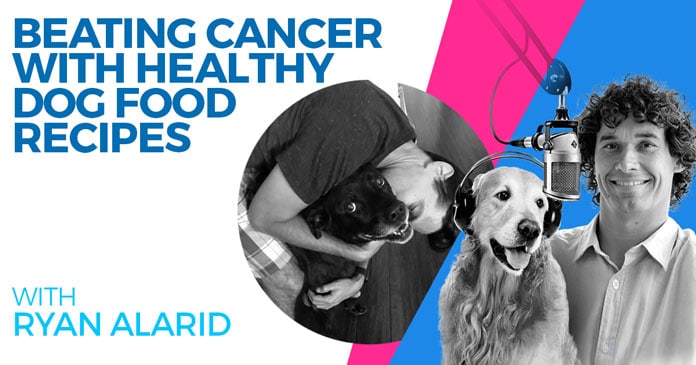
Within 2 years of her diagnosis, after trying various remedies and medications with limited success, it was time to let Rosie go.
Ryan and his family were devastated, but he was also MAD! Why did this happen? What could he have done to prevent it?
This tragedy set Ryan on the path to finding the cause of Rosie’s—and many other dogs’— cancers. Today he shares with us what he learned, and how to potentially almost double your dog’s lifespan, and quality of life.
Let’s find out what our dogs REALLY need in their DIETS with Ryan’s Healthy Dog Food Recipe Books
You’ll Hear About
- [08:52] Rosie’s sad cancer story
- [10:45] When it’s time to say goodbye
- [18:06] Commercial dog food
- [18:56] Ryan’s research into kibble
- [23:50] The Maillard Reaction and its link to cancer
- [27:77] Wet food
- [29:40] How to use the Salt ingredient to make an educated guess about the amount of other ingredients in the food
- [32:30] Feeding dogs meat
- [34:00] Real Food for Dogs – Recipes
- [43:30] Spices for dogs
- [44:26] How expensive is giving your dog Real Food? How much time does it take?
- [48:04] What about grains, flour and pasta… and garlic?
- [52:22] Get Ryan’s books for a bargain!
Links & Resources
- Check out Ryan’s Healthy Dog Food Recipe Books where he shares the massive discount for all my TODT listeners.
Click the button below to get all four books (Real Food, Real Treats, Real Care, and Real Weight Loss) for the price of less than ONE book – just $37.
These books are are digital ebooks which you can download instantly to your computer, phone or tablet…meaning you can start making your dog a special meal today!
- If you are interested in more about dog food check out this video by Dr Becker
- For a great resource about exactly what’s in YOUR dog’s food check out Dog Food Advisor
Learn more by tuning into the podcast!
Thanks for listening—and again, don’t forget to subscribe to the show on iTunes / Spotify to get automatic updates.
Cheers,
~Doggy Dan 🙂

Voiceover: Welcome to the Doggy Dan Podcast Show. Helping you unleash the greatness within your dog.
Doggy Dan: Hello, everybody. I'm Doggy Dan and today I am with Ryan Alarid who is an amazing man. He's a proud husband and father to a human baby boy named Striker. He has three fur babies, Milton, Buddy and Captain, and over the past 12 years he's generated over $350 million in online revenue promoting both his own products and third-party products, however, all of that fails into insignificance when on April 15th, 2018, Ryan had to put his black Lab Pitbull down because of a brain tumor.
This sparked his passion, determination and industry contacts to find a solution to help end the cancer epidemic in dogs so every family can spend more quality time with their fur family members. They don't have to go through what he went through. This culminated with the creation of real food for dogs and his newly formed company the Healthy Tail Company, real food for dogs is a smart, healthy and fun way to make homemade dog food for your best friend.
So, today I've got Ryan Alarid on the show so he can have a chat about dogs, about Milton, Buddy, Captain and some of those topics that we don't really want to talk about maybe, which is: Are we feeding our dogs the best food? What is the best dog food? Should we be making our own food? All that sort of stuff. It's a fascinating topic. It's wonderful to have you on the show here, Ryan. Thank you for joining us here today.
Ryan Alarid: Thank you. Thank you for having me and the opportunity not only to share my story but hopefully, educate everyone listening and they educate someone and they educate someone because we just need to feed our dogs the best things we can and make sure they have the good lives that we can give them because they truly give us so much joy.
Doggy Dan: Exactly. Now, anyone who's got three dogs is a real dog lover.
Ryan Alarid: Yes.
Doggy Dan: Agreed?
Ryan Alarid: Yes and all ours are rescue dogs.
Doggy Dan: Ah, good on you.
Ryan Alarid: Yes.
Doggy Dan: Yeah. Tell us more about Milton, Buddy and Captain. As well as their breeds and ages, can you give us their personalities? I think it's sort of fascinating for dog lovers, we love our personalities. Tell us who they're most like?
Ryan Alarid: Yes. We'll start with Buddy. Buddy is our black Lab and a Tennessee Tree Hound mix, which is a breed most people have never heard of.
Doggy Dan: No.
Ryan Alarid: He looks like a black Lab with beautiful brindle on his chest and his paws and his little butt but he's a personality. He's head of security. He's head of mom and baby security. He's the most lovable little guy, but if there's ever a noise or anything, he goes from lovable to “I'm standing in front of mom protecting mom.”
Doggy Dan: Wow.
Ryan Alarid: We call him head of security.
Doggy Dan: Yeah. Look, can I just jump in?
Ryan Alarid: Yeah.
Doggy Dan: This is why I love chatting to you because we have this passion for dogs. I read that in every pack there is an alert dog and I have almost the same thing. I have this alert dog who barks and tells everybody there's danger and she won't actually back it up. My question is he the one who will back it up as well as do the alert?
Ryan Alarid: He would absolutely back it up if he had to. He doesn't like to but if someone broke into our house and threatened our family, he would attack.
Doggy Dan: Yeah. Gotcha.
Ryan Alarid: Yes. Then, next up we have Milton. He's our little Chihuahua and King Charles Cavalier mix. We actually shaved him like a lion. He has a lion mane because he's got the long hair and a lion tail, cutest little guy. We adopted him. The shelter said he was one year old and that was a blatant lie because his teeth were so bad. They said he spent about a year on the streets here in Las Vegas and the vet actually thinks he was, at the time of adoption, about four or five years old, based off the teeth and everything. Well, we adopted him and loved him. We actually call him our drug lord. He has his own little mafia drug lord kind of mentality, personality kind of like, “Hey, don't mess with me but I'm still going to respect the authority of Buddy.”
Doggy Dan: Gotcha.
Ryan Alarid: Yeah, and he's the smallest of the dogs. And then we have Captain who we just got, we rescued last Christmas. He's a Dudley Lab. I don't know if your listeners are familiar with Dudley Labs because they're different from regular Labs because they have the white, and the pink nose and either blue or yellow eyes. He's completely white but he's a mix between a Dudley Lab and a Shepherd. So, his back legs and his tail are full bushy. He's not security. He's about playfulness and cuddly. That's his job.
Doggy Dan: Beautiful. He's the lucky one.
Ryan Alarid: Yes.
Doggy Dan: He's got the easy job.
Ryan Alarid: Yeah. Milton bosses him around big-time.
Doggy Dan: Yeah. Brilliant. Don't you love it when you see the little dogs bossing the big dogs around?
Ryan Alarid: Oh yeah.
Doggy Dan: It's just hilarious.
Ryan Alarid: Oh, absolutely.
Doggy Dan: Love it. Love it. Love it. So, you've always got a passion for Labs, what's your sort of back story? Did you grow up with dogs or how did you end up with three? Because like I was saying anyone who's got three loves dogs because if you've got three they turn into a pack.
Ryan Alarid: Oh, absolutely.
Doggy Dan: It’s not like having one where they're just the dog, with three they become a pack and it's full-on or can be full-on.
Ryan Alarid: Yeah. So, I grew up with black Labs. My parents since before I was born, we always had a black Lab. I grew up with a dog. I didn't have any choice. It was just part of the family whether it's picking up poop, feeding the dog, walking the dog. It was just-
Doggy Dan: Yeah. You got it.
Ryan Alarid: … cuddling the dog. Dogs are so ingrained in my upbringing. In fact, my parents even said, “If you don't like dog hair, don't come visit the house. We clean as much as we can but, sorry. They're going to be dog hair. So, get over it.” Now, my parents have two dogs now. My brother has three dogs he actually rescued. He lives in Albuquerque, New Mexico. He's an x-ray tech so he's actually in frontlines right now with all the corona but him and people he knows found, I think it was like, twelve 3-day old puppies in a dumpster.
Doggy Dan: Got you. Yeah.
Ryan Alarid: He helped with a couple of other people. They bottle fed them. Fed them for a couple of months, and anyway not all of them made it, some of them did not make it but one of them, he just fell in love with, and now he's raising that little guy or a little girl. It's a little girl. So, yeah. No. Dogs are in my family. My wife is a dog person. I had one dog when I met her, we now have three, if we had more room we'd have 15.
Doggy Dan: Yeah. I get you. Yeah. I often joke if I had $10 million what would I do? Well, I'd probably buy a big piece of land and put a fence around it, like a huge five-acre fence and get 30 dogs and just hang out with the dogs.
Ryan Alarid: Exactly. Exactly.
Doggy Dan: Maybe you don't need 10 million to do it, you just set up a rescue so that's kind of what I see as my retirement to be honest. It's just having a big pack of dogs. That's what I want to see myself doing in a way. Yeah. I hear you. 15 dogs, beautiful. One thing before I forget, I would love to get a photo of Milton, Buddy and Captain. I think there's nothing more fun than getting their photos just for our web page because all of this podcast, we'll put it up in a beautiful page for people to read it and watch it and listen to it and stuff, again and again, and we'll put some photos in there of dear Buddy and Captain and Milton.
Ryan Alarid: Absolutely.
Doggy Dan: Then, the other thing is your dear Lab Pitbull who got the brain tumor. Can you just touch on that? I know it's, uh, you don’t have to go into detail because I know it can be pretty moving…
Ryan Alarid: Yeah. So, I do apologize if I tear up even though it's been a couple years. So, she was my first dog on my own. Because we always had the family dog, then I came out, I went to college, I graduated college, I was out of college for about a year and I rescued her. She's a rescue. She was, oh my god, the most hyper pain-in-the-butt dog in the world but I just loved her. I always told myself because I didn't like when a lot of people would have dogs and you knew they were not living a good life. It was like, “Ah, you probably should put them down or this and the other.” They can't walk, they can't, they're not happy.
I told myself from day one, I said, “If the day ever comes where my baby girl, Rosie…” That was her name. We called her Roro. “Could not walk and was peeing herself, that's my sign. That's when it was time.” I told myself that from day one but just like many of the people listening, I never thought that day would come. She started having seizures and when she was 14 years old, it got to the point when… I mean, she was having six, seven seizures a day and every time she had a seizure, it took a toll on her body and it got to the point where she couldn't walk. She was peeing herself and that's when I knew I had to hold my end of the promise that I would give to her and what we did is we actually had someone come to the house. We had a vet come to the house and do it so that our current dogs could say goodbye. She could be on her bed. She wasn't having anxiety about going to the vet and I do recommend that. If you have the ability to have them come to your house…
Doggy Dan: Yeah. Totally. Totally.
Ryan Alarid: There's no good way to do it.
Doggy Dan: No.
Ryan Alarid: I know some people are very against that. They just want to let their dogs pass naturally and that's fine, that's up to you, that's your choice, but I didn't, this was my choice. I held up my end of the bargain. I just gave her kisses. I was crying. I just kept thanking her for… Sorry. I'm tearing up right now. Thanking her for all the life she gave me and happiness. I got her out of college. I went through everything with her. We went through girlfriends together, moving. We went through hard financial times together. We went through a divorce together, went through everything.
It was just so hard. Now, after she passed, we had two dogs. We didn't have Captain yet. We had Milton and Buddy and about a few weeks or maybe a month passed and I was like, “Why could I not have one more year with her? How could I do that with my current dogs? How can I have one more year of just quality time? No seizures, quality time, just one more year, one more kiss, one more…” That's when I just went down the rabbit hole because I knew it had to be food because I gave her everything, all the good stuff.
I did the Blue Buffalo, the really expensive food but I was like, “What's going on?” I researched it during that month that's when I found out it was food. Sorry. When I found out it was food, I guarantee you almost everybody listening to this podcast has done this, probably for weeks at a time, have gone to the internet and researched what's the best dog food to give to your dog. I guarantee you've all done it. I guarantee you no matter how much research you've done, you don't have a damn answer.
You know it's bad, right? We know it's bad but we don't know what's good, and so far we all come back, oh, well, on the bag it must say chicken or beef or turkey as the first ingredient, like sure, that's better but that's still… Yeah. We can go into all that more later, but anyway, yeah. Rosie, oh my god. She was just the apple of my eye. Oh my gosh. I love her. I think of her all the time. She's really the motivation because I don't want anybody else to have to go through that, and if they do, I want them to instead of their dog going to heaven at 14, to do it at 16, 17, 18, so you have more time.
Doggy Dan: Yeah. How old was Rosie when she passed away?
Ryan Alarid: 14.
Doggy Dan: She was 14. That's good. That's good. Oh, hey, Ryan, I appreciate you sharing, man. I felt it all and I still well up a lot just thinking about my dear dog, Peanut. She was 13 and a half when she passed away and you know my story. We touched very briefly on it that she had kidney tumors, it was kidneys. I'm pretty sure it came from a very well-known big branded manufacturing dog food that I fed to her for the first few years of her life. It was much later that I realized it was, in my opinion, it was, well, I know it was full of a preservative that has been banned from the human food production, food chain, everything, because it produces every bad cancer, just everything. It's horrendous but it's still allowed in dog food.
Ryan Alarid: Oh. Oh my god. Just so much… Yeah.
Doggy Dan: Yeah. That's just how bad it is.
Ryan Alarid: Oh yeah.
Doggy Dan: It's one of the biggest manufacturers, I'd been feeding her for years, the product which is banned from the human food chain, because they know it produces all these tumors. So, anyway, we don't want to go into all that sad stuff but it is important I think just to anchor where we're coming from. Your passion, your love for the dogs and it came through and I felt it and appreciate it because we're all dog lovers.
I just want to kind of put a little bit of a caveat or first of all, actually, I want to touch on something. What Ryan said about when your dog is coming to that time for them to pass over, I'm lucky enough only to have had to put one dog down, a couple of cats; and all of my cats and Peanut, the dog, were all put down on our property. We paid a little bit more for the vet to come to our house and it meant the world to me and my wife and to our animals.
I really encourage you to consider it because there's nothing quite like that final resting place for your dog when they can be in your arms or be in their basket, and it may be a little bit harder for you, may be easier but I urge you to consider what it's like for your dog and the other thing which is really important here is the biggest favor I think you can do for your dog is to be there with them when they pass. I say that with one caveat and that is that you do have to be able to hold it together a little bit. You may have tears in your eyes but you don't want to be screaming and all the rest of it but if you can be there present with your dog, you could well be amazed when they look you in the eye and hold the stare because they are saying goodbye.
It's not much different in my opinion from a human being to be taken to a hospital where you know nobody and nobody knows you and there's no one that you love there and you realize you're being put to sleep, compared to being at home with the ones you love and you being put to sleep. So, I know we're going to be talking about dog food and we haven't even started that yet but sometimes things come up like this which are super important and I think this is one of those things for the love of the dog, be there if you can when you say goodbye. Yeah. Any thoughts on that?
Ryan Alarid: 100% agree. The cost from having someone come to your house to go into a vet, honestly, is not that much more.
Doggy Dan: No.
Ryan Alarid: Because no dog likes going to the vet, right? They all know. They all know. They're getting shots. They don't like it.
Doggy Dan: Don’t like it. Yeah.
Ryan Alarid: I did not want that to be my dog's last memory.
Doggy Dan: Exactly.
Ryan Alarid: I want it to be, I was giving her a kiss on the cheek where she loved being kissed and I got to feel her very last breath and I was crying the whole time but I was there just saying I love you. Thank you. I love you and that's-
Doggy Dan: Same.
Ryan Alarid: That was what I needed and I encourage everyone to do it.
Doggy Dan: It becomes a beautiful experience as well as a very sad one.
Ryan Alarid: 100%.
Doggy Dan: It's so personal and yeah. Right. Into the food.
Ryan Alarid: Yes.
Doggy Dan: One thing about the food stuff is, and Ryan and I have touched on this as well. We are not saying – just as like a framing of this whole podcast – we're not saying this is what you have to do, this is what's right for everybody here. I'm kind of hoping we're going to disagree on a few things, Ryan, but we might end up just agreeing on everything, which is cool as well. But we're just going to talk generally. What we're saying is, this is not a prescriptive “every dog should this, you got to feed them whatever.” We're just having a general chat here, guys.
I don't want to bring any anger or heat or frustration if you disagree with anything we're saying, guys. Just looking to add another… what is it? Another angle-
Ryan Alarid: Exactly.
Doggy Dan: … to what you already know. So, top line, top line, what's your take on dog food, dry food, wet food, meat? Where are you coming from? Tell me all about it.
Ryan Alarid: My top line if I can give one sentence to anybody, the average dog owner I'd say, “Stop feeding your dog dry kibble and canned food.”
Doggy Dan: Got you. Tell me why. Why?
Ryan Alarid: So, first off, the government regulations on what actually constitutes the meat that goes in and meat by-product and how it's made are almost non-existent, at least, in the US, right? They have an association but the guidelines are so loose and so vague-
Doggy Dan: You can, yeah-
Ryan Alarid: … it's like-
Doggy Dan: You can put anything in there.
Ryan Alarid: … you can put anything, and it's a very lucrative industry. They want to make as much money as possible. They're putting in rotted meat, like who knows, right? Preservatives, then they extrude it. I don't know if you know anything about the extruding process on how they make dog food and pretty much everything about kibble is not good.
Doggy Dan: It's pretty disgusting and I'm not going to do this the whole way through this show but I do want to do it one more time. You ready for it?
Ryan Alarid: Yeah.
Doggy Dan: Again, take all of this with a pinch of salt but not all dry food is exactly the same.
Ryan Alarid: Oh, 100%,
Doggy Dan: There is some really good dry food out there but what we're saying is you have to be aware there is some horrendous stuff out there. It's not always related to what you pay. You could be paying the highest price and you can be getting some of the lowest grade, worst, most preservative pumped filled stuff out there.
Ryan Alarid: Yeah. I will say just … So, I have homemade dog food books that I sell and I make homemade dog food for my dogs. But we also do have kibble for when we go out of town and we have a dog sitter, right?
Doggy Dan: Yeah.
Ryan Alarid: But, again, so my kibble, it's for the big dogs, it's dehydrated, right? It's not extruded. It's minimally processed. For our little dog, Milton, we have baked dog food. Again, because it's still not great stuff in my opinion but it's better than your normal bad dog food. Again, if you have to do kibble, again, and we have it in our pantry because we travel a lot, it's too hard to tell the pet sitter to do this, that and the other. We do have either dehydrated dog food for the big boys or baked dog food for Milton.
Doggy Dan: It's funny because I do also give my dog some dried dog food, but I have done a lot of research into what is the type of dry dog foods that I give my dogs. I've made sure there's no preservatives, pretty much nothing in there. They've got all the good stuff and I don't feed it very often at all. In fact, I do the mix which is something we can talk about, about mixing dog foods up and not giving them the same thing.
Just going back to what you said earlier about the guidelines for what's allowed in dog food, dry dog food, is so relaxed. I will add a couple of videos and a link to a website which kind of ranks dog foods and analyzes it and I feel it's pretty reliable, pretty fair, pretty honest and independent. I'll also add a video on there, which … it's pretty scary when you see what you're allowed to put into dog food. It's like pretty much leather.
I mean you can have a look into it but the video is saying you can pretty much put leather into it and call it meat, it's animal product. You can put oil, all sorts of crazy oil and almost like I don't want to say engine oil but this video is saying you can pretty much put this stuff in and it's classed as “dog food.” A leather belt and castor oil and I remember watching that going, “Whoa. Now, I see what they're saying.” The thing is, our dogs cannot complain how bad the food is. They will eat rubbish. That's one of the issues why the dogs can be fed such absolute rubbish.
Ryan Alarid: Well, and so going off what you're saying is, and I don't think we've actually talked about this before but the dog food companies, they can put, like you said, absolutely rubbish in the dog food but the dog still eat it, but why is that? I'll tell you exactly why, because it's actually a process… If you look at almost every kibble, have you ever wondered why they're all dark brown? They're all roughly the same color within a shade or two of the same color.
There's a reason for that because most of them are a process called… uh, they're “extruded.” Hopefully, I'm saying that right. Sorry. But what happens is, how it's done, how it's baked under high heat, high pressure, and what happens is, under high heat, high pressure, something happens called the Maillard reaction. The Maillard reaction turns it brown.
So, for instance, and the Maillard reaction makes things really tasty. If we're cooking a steak, obviously, the steak is pink, right? When we cook it, it turns that brown and a lot of times that edge is really tasty. Well, that's the Maillard reaction, right? It breaks down sugars and it's really tasty. Sometimes when it's very low levels, it's actually good for us, however, when it's at high levels it's almost like feeding…. it's like just injecting cancer into every little bite.
Doggy Dan: It's really bad. Yeah. That's almost the burnt that you're saying, like I've read… I understand for humans that burnt stuff is almost carcinogenic. It's not really that good for you.
Ryan Alarid: Absolutely. Just to let you guys know, so kibble, just dry… Again, I'm just talking dry kibble here. On average is 122 times higher than the highest allowable amount for humans, so think about that.
Doggy Dan: Say that again.
Ryan Alarid: So, say that the human level is say 2, right? On a scale of 1 to 20, for example. They are up almost at 18, 19. It's literally 122 times higher than allowable for humans, than the max allowable for humans. That's just how it's processed. This is before you take into account preservatives, the crap that they add into it.
Doggy Dan: All the other stuff that's added. Yeah.
Ryan Alarid: Just a matter of cooking it, you create the Maillard reaction. Again, I'd encourage everybody to Google the Maillard reaction for yourself and start going down that rabbit hole.
Doggy Dan: Yeah. I think that whilst we talk about this, and this is not about bashing dry food because, like I said, I feed my dogs dry food. We're just saying be very careful and be aware. One of the things, for example, I became aware of because I chatted to somebody… I actually was training his dog in his home and he said he imports dog food from the US into New Zealand. He said he's got a container of the stuff. I remember hearing how much he was importing it for, what it was actually costing, and the increase in price was phenomenal.
He said they were bringing in huge containers. It didn't happen very often and it suddenly made me realize that this very cheap product was coming in, it was being inflated to incredibly high prices and it was also sitting on shelves in warehouses, and then in people's garages for months and months and months. This has been spoken about it. You can feed your dogs some of this food like years later and it hasn't changed because some of the preservatives of that, I mean they're powerful, is that the word we want to use?
Ryan Alarid: Oh yeah.
Doggy Dan: I mean it's almost like, is it still food if it doesn't change, never goes off? If it can't go off, what is it? It's a static product, which is… Yeah. So, that's the scary stuff.
Ryan Alarid: Yeah. We've talked all the scary.
Doggy Dan: Well, that's the dry food. So, dry food, you're not a big fan of dry food although we touched on the fact that there is some – a lot of it is much better than others. Tell me about the wet food. What's the problem with wet food? Because I often like the wet food and I did buy some. I've got to say, we've got some animals over here called possums, and I think we've got four million people in the country and about 18 million possums. Go figure. They came from Australia, invaded the country and they are, well, they've started actually catching them and it's a bit… I don't like hearing about any animals dying but there are some dog foods actually made out of possums. It's like possum roll.
Ryan Alarid: Oh wow.
Doggy Dan: Yeah. You can just see this is quality food. This is quality meat. I've fed it to my dogs. I know the guys who make the stuff and it's powerful and pretty amazing stuff. Again, I class that as wet food. That's probably some of the top of the range stuff. I mean it's basically wild, it's wild meat, and so that's beautiful stuff. But, because they get the whole lot, they get all the meat and all the best bits are in there, they haven’t been taken out. But when we talk about some of the dog rolls and the wet food, what's your thoughts on that, Ryan?
Ryan Alarid: Yeah. My thought on food almost as a whole is, let's get the Maillard reaction out and the preservatives out.
Doggy Dan: Got you.
Ryan Alarid: If we can get those two things out of your food, whatever is left, whatever you're feeding them-
Doggy Dan: Got you.
Ryan Alarid: … is way better.
Doggy Dan: Yes.
Ryan Alarid: Then, because I know another thing is “grain free food” versus “grain food,” half the time like, “No. You need grains.” “No. You don't need grains.” I'm 50/50 on that one. I haven't completed my research on it but again, let's get those preservatives out, let's get that processed food out. Here's a cool thing, again, I don't know about New Zealand, but in the United States there's very few regulations on dog food as we touched on, but the one regulation they do have would actually make us reading a label a little bit easier is, in the United States they actually regulate how much salt you can put into dog food.
So, that salt, you cannot put more than 1% in. So, if you're ever reading a dog food label this says, “I've got sweet potatoes and blueberries and all this.” What you do is look in the panel and find all the ingredients because obviously the first one is the most ingredient, second most, third most and so on. Find salt because salt, at most, will be 1%, then everything else after. So, if all your sweet potatoes and blueberries are after salt, that's just trace amounts – but they can still put it on the packaging, on the pretty labels, right?
Doggy Dan: Yes. Yeah. Yeah.
Ryan Alarid: That's just a little advice for anybody. Find out where it says ‘salt’, anything after that is pretty much preservatives coloring and BS.
Doggy Dan: That's really cool. Yes. Yes. That's fascinating. So, basically, wet food, what you're saying is, that will have gotten rid of a lot of the Maillard effect, is that correct?
Ryan Alarid: Yes.
Doggy Dan: Because it hasn't gone through that roasting. So, that's good. So, possibly wet food, which doesn't have the bad preservatives. Again, that's a whole new topic and something we need to look into.
I don't know what you think of this statement but somebody said to me, I like it personally, I often recommend this, is when you're reading the ingredients, if you can't pronounce the word in the ingredients on the label on the dog food, whether it's wet or dry or whatever or the tin, if you can't pronounce it, if it doesn't sound like food, if it doesn't look like a food word, if it's sodium sulfite, chloroformate, yeah, alfredite, it's probably something weird that you may want to stay away from, and if you have lots and lots of those things on the ingredients label, that's where you've got to start asking the question, is one of those actually a pretty bad preservative? Would you agree kind of, is that along the right tracks?
Ryan Alarid: I not only agree with that, I'm going to add to it that at the end of the label there's also even more long words, and all those are like vitamins and supplements that they have to add to the food because, during the processing, the extrusion processes, it literally cooks all the nutrients out of the actual food, so they need to add it, just so they can meet the bare minimum requirements to sell it.
Doggy Dan: Got you.
Ryan Alarid: Yeah. Agree. If you can't pronounce it, you should not be giving it to your dog.
Doggy Dan: Okay. I'm looking at the time. I'm having such fun chatting.
Ryan Alarid: Oh yeah.
Doggy Dan: It's like, okay, great. We've got to get going. What about meat though? Meats, I would say meat is king. My dogs, I want to do this as a test. Put down a bowl of dry, a bowl of homemade food, a bowl of some other wet food, and then a bowl of meat. I want to see which dogs go for which bowl because I'm a big fan of meat, and yeah, I just want to add in there, I'm fully aware there's not actually enough meat in the world for all the dogs to eat meat. So, what's your take on meat? Do you think it's a good eat or…
Ryan Alarid: My take is, when I look at dogs and coyotes and wolves in the wild, they eat meat…
Doggy Dan: Totally.
Ryan Alarid: … but they also eat berries. They scavenge. They eat whatever they can, right? But I'm a huge proponent of meat and protein for dogs, especially, I mean, we're lucky enough to live in countries where we can provide this for our dogs. Do I want to give my dog a 100% meat diet? No. But do I want it to be a very large portion of its diet? Yes.
Doggy Dan: Got you. Yeah. I think one of the things even with meat is you want to be careful, you're not just giving your dog the same cut of meat from the same animal again and again and again, because if you just give your dog chicken breast, it's just not got the variety of nutrients and the rest of it that your dog needs. Just like my son, he may like sausages but if all I ever feed him is beef sausages, he's going to get pretty sick pretty quickly.
Ryan Alarid: Oh, 100%. That's why, shameless plug here… That's why, in my recipe books, that collectively, there's actually four recipe books, but collectively there's over 100 recipes in there, and the reason there's over 100 is variety because exactly like you said, if you give your dog beef and sweet potatoes every day, it's missing other nutrients. So, then, one week I'm doing beef, sweet potatoes and this recipe, then next week I'm doing duck and other things because, again, just like us, we need different nutrients.
Doggy Dan: Totally.
Ryan Alarid: If you give it a good variety of nutrients, it's going to be a happy, healthy dog.
Doggy Dan: So, tell us a little bit about your homemade recipe books because I've got them and I've tried some of these recipes and my dogs love this stuff. I mean, I got to be honest, my dogs aren't fussy so even if it's some recipe from your weight loss book, they love it but there's the Real Treats for Dogs, there's the Real Food for Dogs, there's the Real Care for Dogs. Tell us a little bit about… I don't know whether you want to just talk about one of those four.
Ryan Alarid: Yeah. I'll talk about the Real Food for Dogs because that's our number one seller because it's your everyday food. Again, like we said there's a whole bunch of recipes in there to give your dog variety, right? It's going to thank you. I guarantee you, you make some of these recipes, if you've never made homemade dog food, if you get some of the recipes that are in my book, watch your dog react. It's going to be way more excited for dinner time than you've ever seen your dog.
Doggy Dan: Can I just read some of them out to people just so they get an idea?
Ryan Alarid: Oh yeah. Absolutely.
Doggy Dan: Guys, I’ve got the book in front of me and we’ve got burritos, we've got pizzas, we’ve got… it's called Chewy Cheesy Chihuahua Pizza. We’ve got stews. We’ve got quiches. We’ve got Labrador Loaf. We’ve got burgers, Poodle Pasta. We got all sorts here. We've got vegetarian meals as well. We've even got Shih Tzu Sushi.
Ryan Alarid: That's right.
Doggy Dan: That's a mouthful. Shih Tzu Sushi. So, yeah.
Ryan Alarid: Yeah. We definitely wanted a little fun with the names because we wanted to make sure that it's fun to make it, right? We want to make it an activity that you can share with your family, your kids, your wife, your husband, your dogs, and a lot of times, do you want to just cook some ground beef or ground turkey and add some sweet potato or do I want to make Bow-Wow Burritos tonight?
Doggy Dan: Yeah.
Ryan Alarid: Well, let's do Bow-Wow Burritos… we want to make sure it's fun because I have a six-month-old child and he's going to be growing up making Chihuahua Pizzas and Bow-Wow Burritos.
Doggy Dan: Exactly. One of the things I love about the books is some of them are really not complex but some of them have a lot of ingredients and others, for example, Poodle Pasta is pretty simple, and so what I mean by, it's pretty simple, it's the sort of recipe you can knock together with your children they can enjoy making. If I was actually to read out Poodle Pasta, it's got whole-wheat flour, it's got beef liver, eggs, olive oil, and some butter. That's a really simple recipe and it explains how to put it together and other ideas that you can put in it with sweet potatoes. You can always add carrots and broccoli and zucchini and cottage cheese and stuff but at its simplest, the most basic, that's the Poodle Pasta part. Then, you can add stuff as well. If your child wants to nibble a bit, it's all good enough for humans to eat.
Ryan Alarid: Oh, I have eaten every single one of these recipes. I will tell you, not all of them are good, not all of them taste good, like anything with liver. Now, I'm just not a liver person but I've literally eaten every one of them because if you look at every one of our recipes, you can pronounce every ingredient. If you're picky, say I don't want oatmeal in my recipe. Guess what? Take it out. Leave it out, or if you want sweet potatoes instead of regular potatoes, put it in, or I want coconut oil instead of olive oil. Do that.
That's the beauty of your stay at home. I always tell people … I always ask them, “What's the healthiest meal you can give your family, your child, your wife?” The answer is all the same for the human family, it's a homemade meal. Well, the same thing for your dogs. What's the healthiest meal you can make? Why? You can control what's in it and the cool thing is, if I'm on a budget, I can go to a big box store, I can go to Walmart or Costco or some big store and buy in bulk and buy the cheapest meat I can, and it's, I guarantee you, it's still healthier than anything you buy in the pet store because there's no preservatives, there's no Maillard reaction, or you can go on the other spectrum, you can go to Whole Foods and buy the most organic, locally sourced ingredients.
Again, most of these recipes, any kind of spices are typical spices you're going to have in your house. So, other than, and most people have eggs, most people have olive oil, most people have flour, and maybe you want to make the same recipe with chicken this week and beef next week. You can. You have such flexibility. I recommend it to everybody.
Doggy Dan: Yeah. One of the things with these recipes is it's not that you have to stick with it in the same way that if you're doing French patisserie baking, you got to stick to the recipe, you can't mix it around or the cake won't rise or it'll flop or whatever. As Ryan says, you can mix it up. Once you've got a hang for some of these ideas of what you can put in for your dog food, parsnips are good, zucchinis are good, tomatoes, canned chickpeas, couscous.
Once you realize the spices, coriander, turmeric, cinnamon, ginger, cumin are all… add some chicken stock and that stuff and your dog loves it. You start going, “Wow. This isn't that complicated.” You may stick to the recipes for a while I guess but I'm sure a lot of people start inventing their own stuff. Is that fair enough?
Ryan Alarid: Yeah. Oh absolutely. One of the best things is when we make a Crock-Pot recipe, which is great, especially for people who are limited on time, you literally throw, just like you would a Crock-Pot dinner, you throw in all the ingredients and there's only a handful of ingredients. It's a Crock-Pot Beef and Rice meal. You throw the ingredients in the Crock-Pot in the morning and cook it on low for five or six hours, in the evening, but I guarantee, literally this recipe has ground beef, rice, beans, butternut squash, carrots, peas, it smells so good like…
Doggy Dan: Oh.
Ryan Alarid: The best thing is you cook that, play a joke on someone, because you cook it, your house smells so good and this one's actually one that would taste really good and granted there's no salt or anything bad, I don't add any though I would if I was eating it, but there's no other major spices in it, but it smells so good. I guarantee you, someone in your house will say, “Oh, can't wait for dinner.” You say, “Well, that's the dog's dinner.”
Doggy Dan: You know you have just reminded me, Ryan, that before my wife, Jenni and I had children, this is so funny… I had forgotten this story. Before we had children, what I'm saying is when we had a lot of time on our hands or a bit more time, we used to cook meals for Peanut. That's right. I used to cook up mince and rice and I'd bake it in the oven. There were a number of times where Jenny would cook it and I actually ate it. Thinking I was nibbling what we were going to have for dinner because it was beautiful, kind of an Arabic baked kind of Moroccan style, tajine kind of mince and tomatoes and spices.
I've just remembered. That's right. Jenni would say, “Have you been eating that? That's for the dog. That's the dog's food.” I was, “It tasted good to me.” I was picking out the big bits of meat at the time when I was eating meat. It was funny.
Ryan Alarid: Think about that, how good of a food are you giving your dog? It not only smells good for you but even tastes good for you! Like, oh my god, with no preservatives. You don't need vitamin additives. Why? Because you're not cooking the nutrients out of it.
Doggy Dan: Yeah. Got it. One of my favorites, I’ve got to add, the Shih Tzu Sushi that we're talking about earlier because it's wrapped in sushi. It's wrapped in those nori sheets. It's got salmon and hard boiled eggs and carrots, parsley, all this beautiful stuff. But my dog, … I often say on the walks, “they're eating their sushi.” Someone said, “Where's the dog?” I'll say, “Oh, he's eating sushi.” If you look, he's actually eating seaweed off the beach.
You start to go, “Yeah.” We love sushi. A lot of people love sushi, that seaweed, and the dogs do as well. They love sushi. My dogs actually eat it fresh off the beach and it's very good for them.
Ryan Alarid: Oh, very good.
Doggy Dan: Well, look, I am looking at the time. We could talk for hours and hours about this stuff. Can you tell me a little bit, maybe about some of the spices? What of all the spices do it for the dogs, all that stuff that we listed earlier? Do you know?
Ryan Alarid: Yeah. So, a lot of the spices, some of it is for taste …
Doggy Dan: Got you.
Ryan Alarid: … and a lot of it's different spices actually because they give different nutrients for the dog on a micro-level. If you look at a lot of our recipes, we don't heavily depend on a lot of spice. It's in there on some of them but for the most part, it's not widely used, but if our recipes have spice, sometimes it's for a taste a little bit because the dogs like it and it's good for the dog, but if you see a spice in any of the recipes it's because we've researched that spice and it does have benefits. Could have a certain vitamin in it. But we generally don't have too much spice in our recipes.
Doggy Dan: No. That's cool. You touched on it earlier, but can you tell us the two biggest things I think which would hold people back is the cost of feeding dogs this sort of quality food and the time it takes. So, they're the two things I thought, I'm just guessing here, but how expensive is it? I think you touched on this earlier, but is it really not much more expensive or much more expensive, and what about the time? How long does it roughly take?
Ryan Alarid: Perfect. So, those are the two biggest questions I get and the cost is actually the biggest myth.
Doggy Dan: Got you.
Ryan Alarid: … because I actually did run some numbers before this. In the United States, we're going to take a 15-pound bag of dry kibble. Now, granted I know you can get in 20, 50-pound bags and 4-pounds, but we're taking a 15-pound bag. A 15-pound bag of dry kibble in the United States on the low-end is around $15 for a mainstream brand, or you want the “high-end” brand, could be $32 for a bag of 15 pounds. Granted there's more expensive, less expensive, but this is just the average.
Well, that's $15 to $32 for dry kibble and that comes to about $1 to $2.50 per pound of dry kibble. Now, when you take homemade, what the cost for that is, again, well if you want to go on the lower end, you buy just regular meat, all the way to organic, that's going to cost between $1.21 a pound $2.50 a pound. So, depending on how you look at it, it could be cheaper to the same price, relatively, of dry kibble. The cost honestly is not…
Doggy Dan: No.
Ryan Alarid: I don't want that to be a limiting factor because if you're paying more for the high-end kibbles versus cooking, you're going to save money cooking it.
Doggy Dan: I've done the same numbers. I sometimes look at the bags of dog food, the dry stuff, and that is like, expensive, man. Compare that to some of the cheaper ends of cuts of meat and it's cheaper to buy pure meat, and then you start going, “Well, what's more expensive than meat?” I mean…
Ryan Alarid: Exactly.
Doggy Dan: I mean if it was 100% meat, it wouldn't be that much.
Ryan Alarid: Yeah. For a lot of our recipes, there is stuff you have in your kitchen already. Again, you can use fresh peas, you can use frozen peas, you use fresh blueberries, frozen blueberries. It's whatever is good for you and easy for you, and then, time, right? Time is actually a consideration because it is going to take a little time. But, for example, my wife and I, what we do is, every Sunday night we make a big meal. We pick one recipe and that's what we make for the rest of the week.
We put it in the fridge, it stays fine all week, and then the next week, next Sunday, we do the same thing. It's just meal-prepping. Many people meal-prep and we can grab a big old Tupperware and a big old thing, we put it on there, and actually, sometimes we use multiple Tupperwares but, and we just throw it in the fridge. You can actually, even if you wanted to be super lazy, you would actually make two or three-month's worth of food in one day, and you can actually freeze a lot of these recipes. Right? Just bring it out enough to thaw.
Doggy Dan: You can always put it in little bags as well, can't you?
Ryan Alarid: Oh, 100%.
Doggy Dan: … like put it in little bags or little plastic containers and stuff and the other thing with these recipes, it's like doing anything. First time it takes a bit of a while, you’ve got to remember, and then, second or third time you do it, you're not even looking at the recipe book, you just throw it in and, boom!
Ryan Alarid: Exactly.
Doggy Dan: Yeah. Cost. Quality. The last thing I really wanted to touch on is you mentioned you're still not too sure about the grains and the flour and pasta and stuff. I know what I feel, but what's your take on all of that, the grains side of things? Do the dogs need it? Is it okay for them, a little bit, lots, what?
Ryan Alarid: Yeah. I'm not done with my research on it. Right now I think grains are good. I think dogs need grains. They eat them when they're foraging in the wild, right? Wolves, and I know wolves are slightly different from domesticated dogs but… So, at this moment, I am pro-grains, however, any recipe we have that has grains in it, if you feel differently, leave them out.
Doggy Dan: Totally. You just adapt it.
Ryan Alarid: Yeah. That's the good thing about making food at home. You can adapt the recipe to your beliefs and what you feel is right for your dog.
Doggy Dan: Yeah. I chatted to a really big dog food manufacturer once and I said to them, “But you know surely just feeding your dogs just meat is the best.” He said, “Well, not necessarily. There's so much other good stuff in other food with berries, like you said, and vegetables and you're getting that full variety. He said, “There just isn't enough dog meat in the world for every dog just to eat meat.” So, regardless of whether meat’s the best or not, we need to feed them other stuff, vegetables, fruit. I can tell you, my dogs, they just love the rice, not too much, but they love rice, they love pasta, they love spaghetti, they love potatoes and all that other sort of stuff, and a little bit of bread, why not?
Ryan Alarid: Oh yeah.
Doggy Dan: My dogs just adore pizza. Pizza’s the one. Cheesy pizza crusts.
Ryan Alarid: Yeah, and you know what?
Doggy Dan: Yeah.
Ryan Alarid: I firmly believe it's okay. Just like moderation, it's okay for me to go have chocolate cake and a beer.
Doggy Dan: Totally.
Ryan Alarid: Right? But as long as I'm not doing it every day, twice a day, right? Same thing for your dog, as long as you're not feeding them onions and garlic and chocolate and grapes like all those known bad things, as long as you're feeding them that, let them. It's enriching their lives. It's not going to hurt them.
Doggy Dan: Tell me about garlic because garlic, this may be our point that we agreed to disagree on. I've always fed my dogs garlic. Do you think garlic is a real bad one? I mean I know alcohol, tea, coffee, chocolate, raisins, grapes, yeah. I don't touch those, but garlic?
Ryan Alarid: Yes. So, originally, I actually had originally some garlic powders and some garlic in my recipes in the Real Food book. But the problem with that is there is so much out there right now saying how bad garlic is, I took it out just from a marketing perspective.
Doggy Dan: Got you. Yeah. Just play it safe.
Ryan Alarid: So, I'd rather err on the side of caution on that. I'm still okay with a little bit of garlic. I'm not going to give my dog a whole bunch of garlic cloves.
Doggy Dan: No. Because it's similar to the onion food group which we know is bad for the dogs.
Ryan Alarid: Exactly.
Doggy Dan: So, onion is bad.
Ryan Alarid: Exactly.
Doggy Dan: Yeah. That makes sense as well, Ryan. I hear where you're coming from. Yeah.
Ryan Alarid: Yeah.
Doggy Dan: Wow. How's that, guys?
Ryan Alarid: Yeah.
Doggy Dan: I'm lucky. I'm looking at all these beautiful food books and I'm going, “Wow.” I just want to rush into the kitchen, start cooking something up but… If you do want to have a look at some of these recipes, and you can jump onto my website and go to the blog where everything will be transcribed so you can read through this, listen to the podcast again and have a look at some of those videos, and see Ryan's dogs, Milton, Buddy and Captain, and there'll be a link there as well where you can get hold of these books, these diet books, one for Real Care and Diets and Treats or you can, if you're listening or you want to write this down now, you can go to tiny.cc/doggyd. So, if you type that into your browser that will take you to the page with all those books. So, that you can get hold of those as well.
Ryan Alarid: I also wanted to add, normally, we sell just the food book for $59, but since, obviously, you were gracious enough to have me on the podcast and let me tell everybody my story about Rosie and my goal, honestly, my ultimate goal is to get this book into as many hands as possible and get people off dry kibble on a daily basis. So, for your listeners, if they use that URL that you just gave, we're actually going to give all four books, which is our Real Food, Real Treats, Real Care, and Real Weight Loss for $37.
Doggy Dan: Wow. All 4 of them for $37.
Ryan Alarid: All 4 for $37 and we're actually working on another book called Real Food for Picky Eaters. It's not out yet but anybody who buys now through that link, as soon as it is ready, we're going to email it to you. They're PDF, you download them so you literally go to the link right now, you can make food tonight. But we'll email you as soon as that book’s ready for free and yeah, we just want healthy dogs everywhere.
Doggy Dan: Ryan, you're a good man. I didn't even know Ryan was going to do those deals for us. I appreciate that so much. That's just so cool. I'm trying to think, is there anything else that we wanted to touch on? Oh, I know one more thing. One other thing, guys, is I think it's really important to recognize, and Ryan's touched on this, but people don't have to kind of go and stop feeding like 100% and move to these cooked meals, 100% do they? You were saying that just once a week will make a huge difference.
Ryan Alarid: Yes. If you could even replace, because I know we're busy and sometimes you live in a small apartment with three roommates, whatever your situation might be, you don't have time to meal-prep every week. If you could replace one full day, it's like a lot, most people will feed their dogs once in the morning, once in the evening, one full day with food you make at home for your dog, I guarantee you, it's going to help your dog. Just thinking if you have someone who eats fast food every day of the week, if you give them one day, at least, where you eat healthy salads and healthy everything, it's going to help them, not going to necessarily help them a lot, obviously the more you do it's going to be better but if you could at least commit to one day a week, that's a great start. Your dog is going to love you. Honestly, if that even gives you one extra happy day together with your dog, it's worth it.
Doggy Dan: Yeah. Let me give you the analogy. I love this analogy. I made it up myself. I would say this. I love spaghetti bolognese but if I'm fed spaghetti bolognese every day for 30 days, you know what? I am so sick and tired of it and if you just gave me anything, anything, a fresh salad or a vegetable curry or, you know, you'd be so grateful. You can see dogs aren't much different. They just want a bit of variety and change and how much health benefits as well, – huge!
Ryan Alarid: Oh. Well, you're going to see less shedding. You're going to see a happier dog. You're going to see better teeth, better joints. I mean it's just… the list goes on and on.
Doggy Dan: Here's the thing, just think about this logically. Have you ever heard of when you go to the vets and you say, “Oh, what's the best dog food?” They said, “This one here.” Then, you said, “Do I need anything else?” “No. This is the perfect food. It's been perfectly balanced. It's the perfect thing. It's all you need to feed your dog.” Okay. What, for the rest of my life? Yeah. Just this one. Yet, if you go to another vet or another, you turn around and ask another person in the same store, they might point to a different food, totally the same thing, and yet, those two dog foods have got very little in common. There's very little in one that's in the other, and yet, somehow they're both saying that's the perfect food. So, it's just a load of mumbo-jumbo. It's like saying spaghetti bolognese is all you need to feed your children for the rest of their lives. How can it be true? Surely, balance is always going to be best.
Ryan Alarid: Exactly.
Doggy Dan: Yeah. So, let's cut through the smoke and mirrors, guys, and get to the truth, and if you're thinking, “Oh, Doggy Dan doesn't like dry food,” it's not quite true, because if you go in my garage, you'll find a big tub of it and I feed my dogs it. So, we are going to balance all of this up with some interviews with some very good dry dog food manufacturer. I don't know who, where or when.
Ryan Alarid: I agree. Like I said I have dried dog food in my house too, but I do recommend if you do dry dog food, my research has shown that I either do dehydrated or oven baked dog food.
Doggy Dan: Yeah. Here's a huge tip, guys. This is worth waiting for. If you're feeding your dogs dry food, do this experiment. If you normally give your dogs one cup of dry food, put at least, I would say three cups of water in a bowl and put the dry food in there before you go to bed. Let it soak through the whole night and watch how much water that dry food has soaked up because that is like a Whoa! moment. That, like, blows your mind when you go, “That dog food has soaked up three times its volume in water.” In other words, if your dog just eats that dry food, how much water has it sucked out of your dog's body?
Ryan Alarid: Exactly.
Doggy Dan: It's pretty scary stuff.
Ryan Alarid: Very scary.
Doggy Dan: Yeah. I mean just that alone makes you go, “Well, why are we being told that it takes a lot…” It's like eating dried rice. If you eat it, you're in trouble because your body starts to suck up… you can't do it.
Ryan Alarid: They told us as kids, “Don't feed dry rice to birds because they blow up.”
Doggy Dan: Wow.
Ryan Alarid: I don't know if that's true or not.
Doggy Dan: Yeah. Yeah. But it needs to swell, and watching… food in the dog’s body… Crazy. Yeah. Just a little tip there. Ryan, it's been fun. It's been fascinating. The time has flown by and yeah, It's got the time where I’ve really got to say goodbye and thank you for that. Again, guys, all of this information, transcription of the whole podcast, is going to be on my website. TheOnlineDogTrainer.com. You can go there and have a look at the podcasts and find this one tiny.cc/doggyd, if you want to go straight to that site and have a look at those recipe books.
Ryan, thank you for your passion, for your love of dogs.
Ryan Alarid: Thank you.
Doggy Dan: Especially liked hearing about your story. It brought back my love for my own dog and how much I love her and how special she was. Thank you for that. It's been real fun talking and sharing ideas and knowledge and understanding of dogs. Thanks, Ryan.
Ryan Alarid: Thank you.
Doggy Dan: ‘Til next time. Have to get you on the show again. I had so many questions I never even got to ask them so…
Ryan Alarid: Oh absolutely.
Doggy Dan: … until next time.
Ryan Alarid: Any time.
Doggy Dan: All right, mate, have a great day. Cheers, buddy.
Voiceover: You've been listening to another episode of the Doggy Dan Podcast Show. Bringing you one step closer to creating harmony with your dog.
Sign up to receive email updates
Enter your name and email address below and I'll send you periodic updates about the podcast.


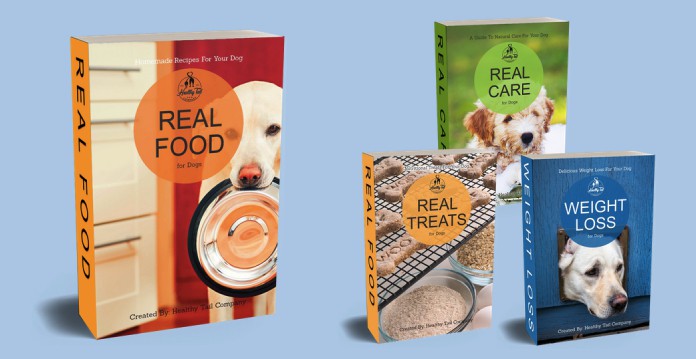

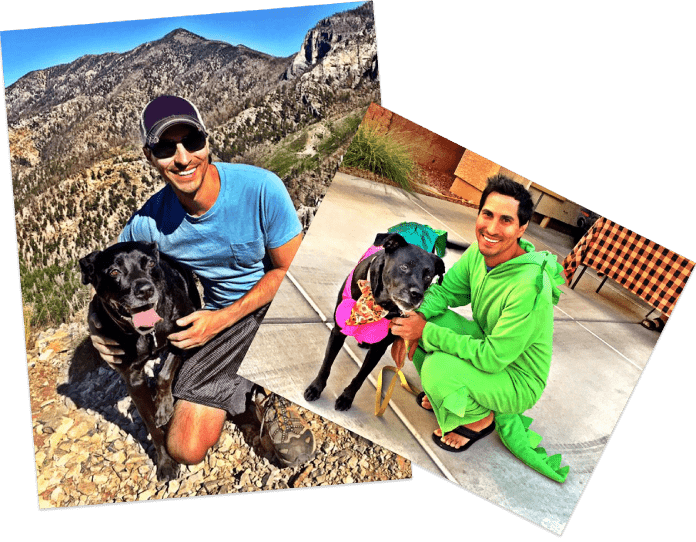
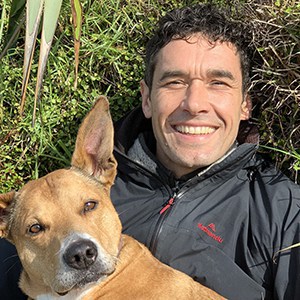
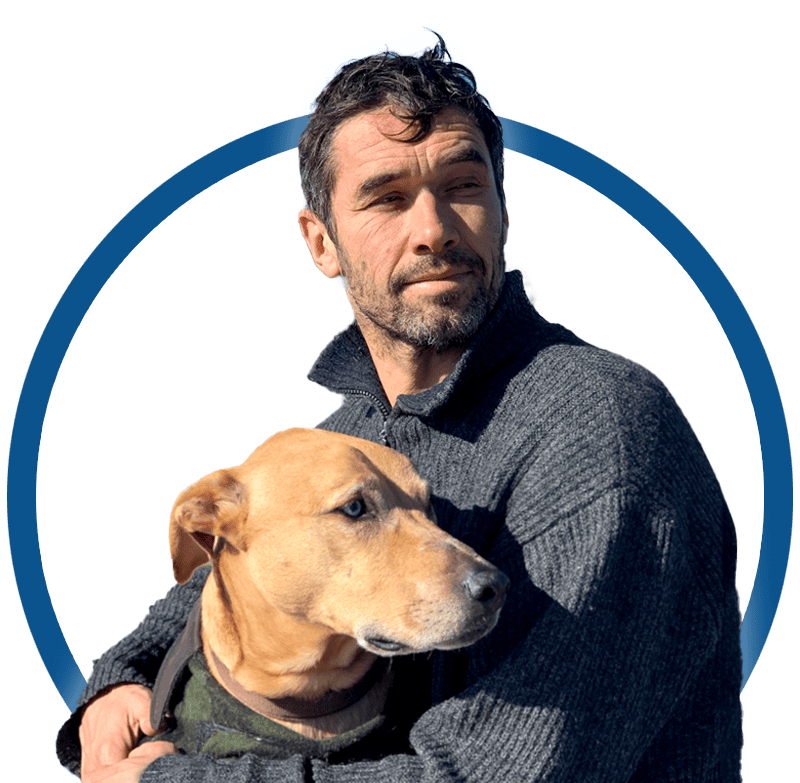


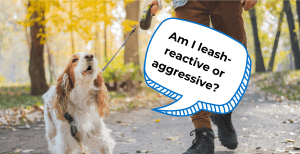
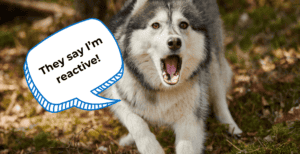
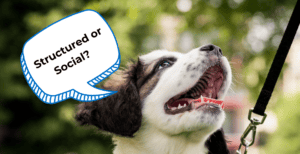
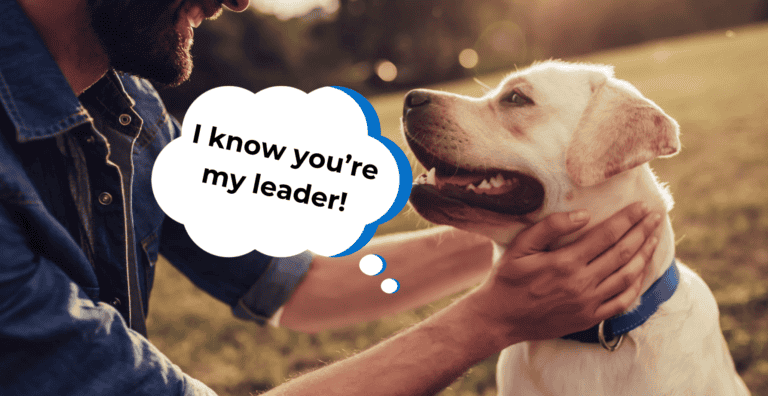
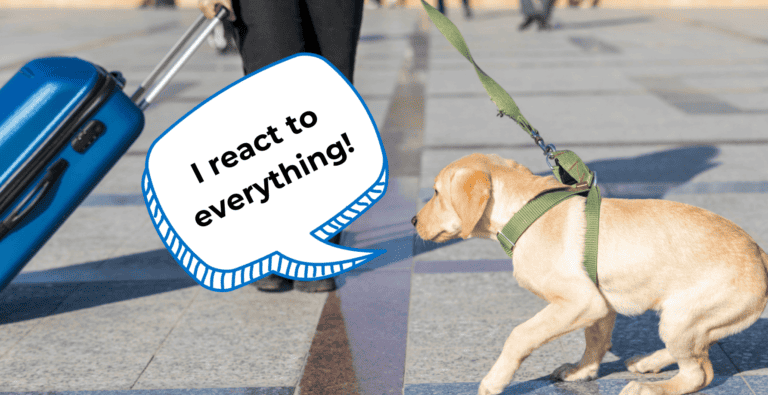
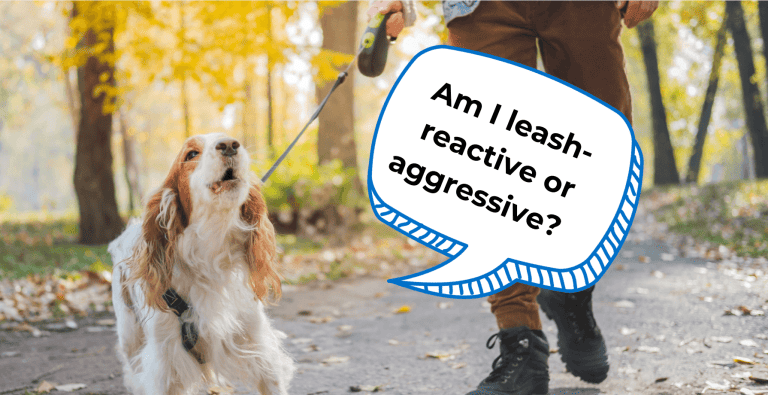

6 Responses
Loved this podcast! I just lost my 5 year old heeler to severe cirrhosis of the liver, she only had a 1/4 of her liver left and some kind of blood thing where the blood cells were attacking other blood cells and then the cells weren’t regenerating. Having to let her graduate to Rainbow Bridge at such a young age totally broke my heart. I cooked meat for my 2 dogs and added raw veggies and asked the vet if I caused these health issues and he said no, cooking real food was one of the best things I could be doing for my dogs.
I lost another one of my heelers to cancer and when he was given a few months to live that’s when I switched to real food and cooking for my dogs, at that time I had 9. His few months to live ended up to be 3 years & I think it was switching from kibble to real food that helped to prolong his life. Matter-a-fact, due to the high dosage of prednisone that the cancer vet dr put him on and never changed the dosage my dog ended up going blind, weak connective tissue and he got double pneumonia and I had to let him graduate to Rainbow Bridge.
His sister at the age of 3 got some kind of rare cancer that no vet in town had ever seen before. The cancer attacked her skin on the inside from her head to her tail and all her organs but did not go inside the organs. Took her in for a procedure to have her tummy looked at thinking there was a blockage and vet found this rare cancer. Had to let her graduate to Rainbow Bridge at 3 yrs old.
After those 2 getting some kind of cancer and eating kibble, I truly believe that it is the food, kibble and can that is causing these health issues with our animals.
Thanks for sharing the podcast!
Hi Kelly, thanks for sharing your story and I’m glad you enjoyed my podcast with Ryan. I’m so sorry you had to say good-bye to your dogs at such early ages…it’s never an easy thing to do but it feel even harder when they are so young. We are learning a lot more about the importance of diet in keeping our dogs (and us) healthy and living longer lives. All the Best, Doggy Dan
Thoroughly enjoyed my 1st podcast since becoming a member. Informative & thought provoking. I can’t wait to try some dog homemade food recipes for my pups.
Many thanx & looking forward to many more podcasts.
D.
Thanks Donna, I’m pleased you enjoyed it! Happy listening, Doggy Dan
Hi, it was very interesting the podcast on food! Those books are they available online? I live in Mexico and they will never arrive by mail…Thank you
Hi Eli, thanks for your feedback! There is a ‘Links & Resources’ section included in the written content of the Blog. It will take you to the Healthy Dog Food Recipe books, where we currently have a special offer for those interested in purchasing them. They are available in both hard copy & electronic formats. Best, Doggy Dan